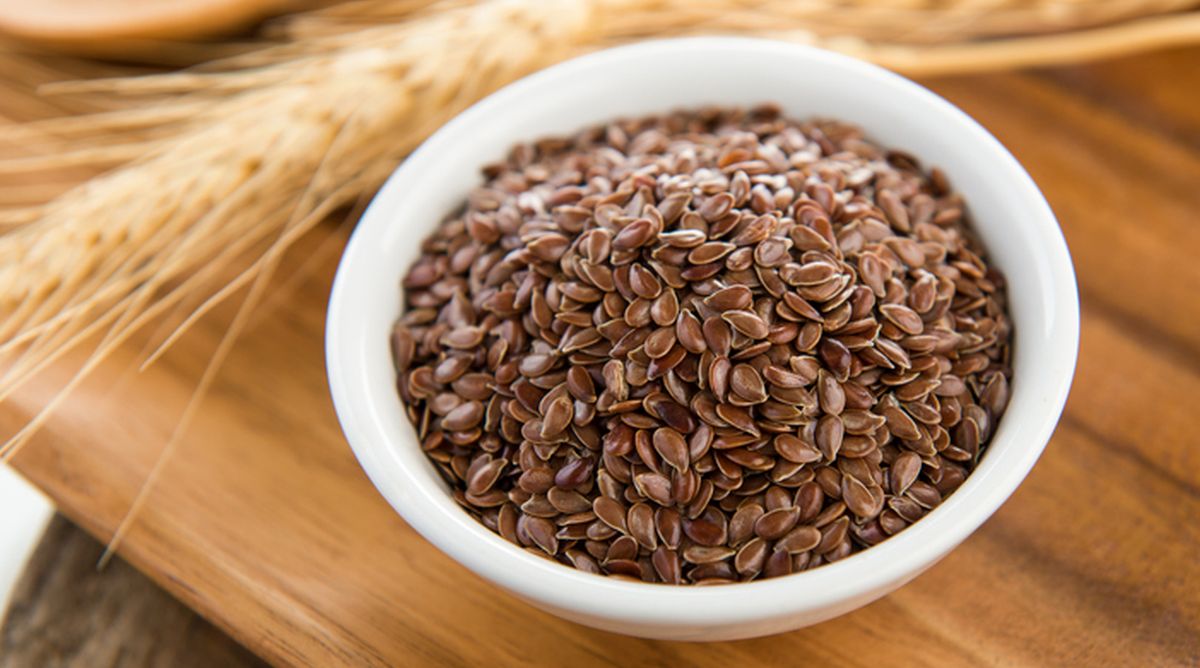Exercise during evening may offer more health benefits against obesity
The findings, published in the journal Diabetes Care, were based on wearable device data from 30,000 people who were followed over almost 8 years.
Flaxseed is the fibre crop of small oily seeds rich in omega-3 fatty acids and fats. These amazing seeds have a mention in Caraka Samhita (Ayurvedic encyclopedia by Acharya Charaka). But it gained popularity only recently.

Representation image (Photo Source: Getty Images)
flaxseeds and flax oil have immense health benefits. They are useful in many health conditions, including cancer, heart disease, acne, diabetes, etc.
Flaxseed is the fibre crop of small oily seeds rich in omega-3 fatty acids and fats. The earliest evidence of humans using the wild flags was in the form of textile, spun, dyed and knotted wild flax fibres found in caves currently situated in present day Republic of Georgia.
A 100 gram of flax seeds have 64 per cent fat, zero cholesterol, 1 per cent sodium, 23 per cent of potassium, 108 per cent of dietary fibres, 36 per cent of protein, 31 per cent of iron 25 per cent Vitamin B6 98 per cent Magnesium and 25 per cent of calcium. The seed, developed in the Middle East thousand years ago, had a major role in developing Ayurvedic medicines.
Advertisement
These amazing seeds have a mention in Caraka Samhita (Ayurvedic encyclopedia by Acharya Charaka). But it gained popularity only recently. People use these seeds as dietary supplements for its nutritional vlue. This beneficial seed can be easily incorporated in our daily diet, in our meals in the form of powder or whole.
Health benefits
Flax seeds are emerging as a superfood as scientific researches acknowledge its health benefits. Here are some of the health benefits of the seeds that are backed by scientific discoveries.
Flaxseeds are high in omega-3 fatty acids that help maintain heart related problems. They are a rich source of alpha Linolenic Acid ALA, mostly plant-based omega-3 fatty acid ALA is one of the two essential fatty acids that we have to obtain from the food we eat, as our body does not produce them.
Studies on animals have shown that ALA In flaxseeds prevent cholesterol from being deposited in the blood vessels of the heart, reduce inflammation in the arteries and reduce tumour growth resulting in lowering the risk of heart problems.
Reduce cancer risk
Lignans are plant compounds that have antioxidant and oestrogenic properties, both of which can help lower the risk of cancer and improve health. Interestingly, flaxseeds are one of the richest sources of lignans and contain up to 800 times more ligands than other plant foods, according to the studies done by WHO incorporating flaxseeds in women’s diet lowers the risk of breast cancer particularly in females beyond 50. Men can also benefit from eating flaxseeds as it can help in reducing the risk of Prostate cancer.
Fibres reduce weight
Flaxseeds contain two types of dietary fibres, soluble dietary fibres which is 20 to 40 per cent, and insoluble dietary fibres which is 60 to 80 per cent. This fibre gets fermented by the bacteria which bulks up stools and results in more regular bowel movement. On one hand, soluble fibre increases the capacity of the content of our intestines and slows down our digestion rate. By regulating blood sugar and lowering cholesterol flaxseeds eventually lead to natural weight loss.
The seeds decrease hunger which aids in weight control. If a person tends to have more snacks and meals, he must eat flax seeds which keep the stomach full for a longer period of time resulting in weight loss.
Controls blood pressure naturally
Studies on flaxseeds have also focused on its natural ability to lower blood pressure. According to studies eating 30 grams of flaxseeds daily for six months lowered Systolic and Diastolic blood pressure by 10 MMHG and 7MMHG, respectively. For those who are already taking BP medication, flaxseeds lower BP even further.
Helps control blood sugar
Type 2 diabetes is a major health problem worldwide. Millions of people are suffering from uncontrolled sugar levels and complications that develop type two diabetes is characterised by high blood sugar levels as a result of either the bodies inability to secrete insulin or the body becoming resistant to it.
A few studies have found that people with type-2 diabetes who added 10 to 20 g of flaxseed powder to their daily diet for at least one month saw reduction of 8 to 20 per cent in blood sugar levels. This blood sugar lowering effect is notably due to flaxseed insoluble fibre content. Even though more research is still needed and the results are confusing, flaxseeds can be a beneficial and nutritious addition to the diet of people with diabetes.
These are a few health benefits of flaxseeds that are proven by many studies done by different institutions across the world. Addition of flaxseeds in different forms can definitely help in many health related problems. And if not beneficial it will not have any side effects on our body.
Advertisement